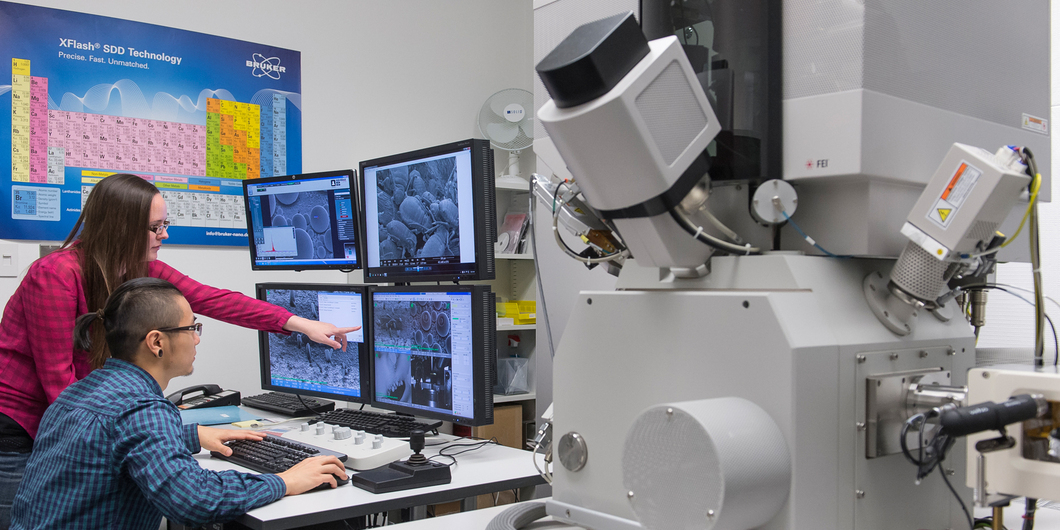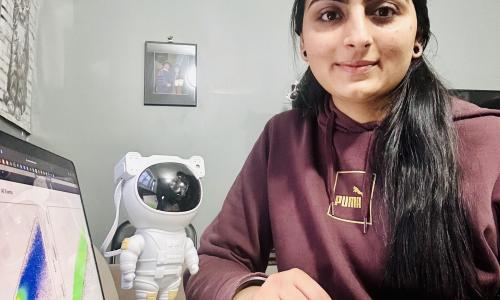
When I first entered the engineering co-op program I was overwhelmed by the sheer number of available positions. When so many possibilities are laid out in front of you all at once it can be a daunting experience. Out of the wide variety of paths, a co-op student could choose to follow, the one that was always talked about the least, in my experience, was research.
After completing my three required co-op terms at two different companies with vastly different environments and cultures (one in the private sector and one in the public sector) I had developed a deep curiosity for learning more about how different types of organizations work. With semesters to spare and course availability looking sparse I had a difficult choice to make. One option was to return to my previous employer to complete some additional co-op terms. I would have been completely satisfied going down this route. Working there was a wonderful experience. But I had an intense itch telling me I needed to try something new.
While I was deciding on what to do next, I was taking a course on biomedical image processing. It was a fun and fascinating course that really piqued my interest. The course taught practical image processing methods widely used in medical applications, and the assignments were all done in MATLAB, a program I enjoy working in. In that same semester, I received an email from the ENSC office that said FAISAL (Functional and Anatomical Image and Shape Analysis Lab) was looking for student research assistants to join their team. Admittedly, I tend to glance over emails like this and forget about them after a minute. On a whim, this was one of the few times that I decided to take a closer look. I discovered that the FAISAL team works on research in the field of biomedical image processing. I had a funny feeling that this was my destiny.
Throughout my time in the co-op program, research co-ops had always been a mysterious thing that I avoided either because I wasn’t curious enough to find out more or because they didn’t seem as attractive as other opportunities. At this point in my degree, it felt like the perfect chance to dive into something that wasn’t just new, but also relevant to my growing interest in image processing.
Now that I have been a member of FAISAL for 4 months I have realized that the only reason I didn’t find research positions attractive was simply that I didn’t know enough about them initially. If you manage to build a connection with a team that is doing research in a field that you are passionate about it can lead to very fulfilling work experience.
One of the biggest things I noticed right after joining the lab was the level of autonomy and responsibility given to the co-op students. Most of the tasks assigned to me were intentionally left open-ended. If my task was to build a particular system it was up to me to figure out what resources were required, study the technology involved, and find the best way to implement the solution. It was also my responsibility to report back to the team about my findings, explain the approach I was taking, and write documentation for all of my work. The best part about my experience is that some of the programming languages, technologies, and tools used by the team were things I had never seen or touched before, yet I was still given responsibilities which made me feel like an impactful team member. It is a good environment to be in if you want to show off your versatility and ability to learn fast. In my previous co-op roles, I would not have been allowed quite the same level of autonomy until I reached a more senior position. Overall, I experienced much more freedom and less red tape in the lab.
If you are looking into pursuing a master’s degree, a research co-op can be a valuable asset. Research co-ops are a great way to gain first-hand insight into the world of graduate studies while also building connections with professors and graduate students. It is also an amazing opportunity to find out what kind of innovation and research is being done in your field of interest. Something cool and exciting that you didn’t even know existed could be happening just around the corner from your classroom.
Lastly, I would like to stress the importance of being curious and nurturing a desire to try new things. Having the willingness to take a step in a new direction can help you gain a wider understanding of the many paths you can take in your career. Trying new things, especially in regards to co-op, can also give you the chance to demonstrate your flexibility and adaptability. In a world where technology is constantly evolving, I believe that these skills are two of the most important elements of a person’s skill set. Perhaps you are uncertain about what your next step should be. You could be planning on pursuing a master’s degree, or maybe you are simply looking for a new and interesting experience. Give research co-op a fair consideration because it may turn out to be just what you’re looking for.
Beyond the Blog
-
Interested in learning more about opportunities like Matthews? Visit the Engineering Science Co-op homepage.













